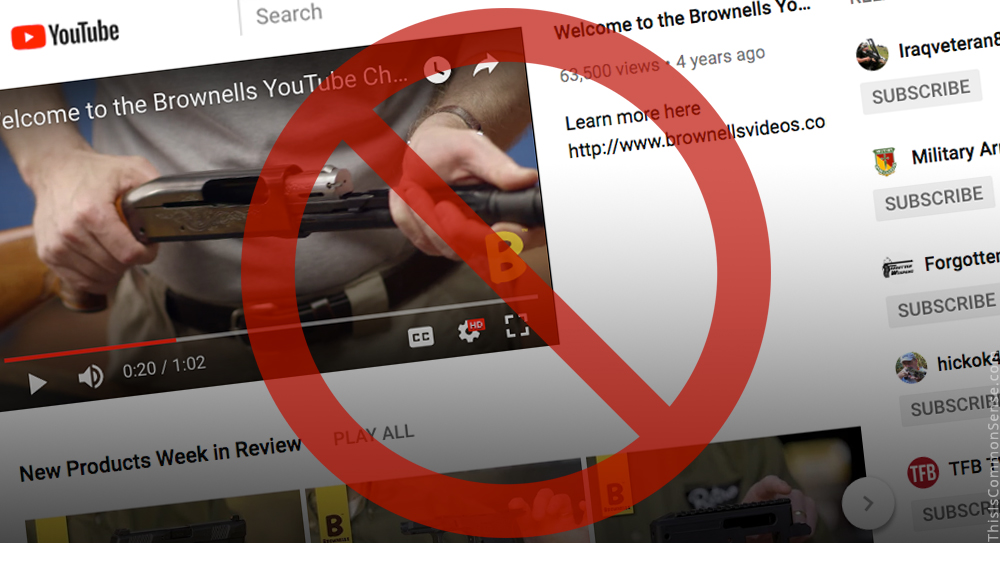I’m glad to be able to say this: Brownells has, present tense, a YouTube channel. Especially glad because, on June 9, Google had shut that channel down without warning or explanation.
Brownells is a family-owned supplier of firearms, firearm parts and accessories, gunsmithing tools, and emergency gear. Well-known and well-regarded by shooters, hobbyists and gunsmiths, the company has a website and a YouTube channel that serves as a “portal to everything shooting and hunting,” as Pete Brownell explains.
Brownells’ YouTube channel is substantial, with almost 1,800 instructional videos and some 71,000 subscribers. Patrons stress that there’s nothing outré, radical, or offensive about the offerings — unless you’re reflexively anti-Second Amendment, I guess.
We’ve got no smoking gun in the form of an explicit admission from Google. But we may plausibly suspect that the firm terminated this YouTube channel for ideological reasons. Perhaps Google shot from the hip here in reaction to the recent spate of school shootings, without pausing to properly distinguish between promoting responsible gun ownership and promoting murder.
We may also never know whether Google expected Brownells to meekly accept the arbitrary snuffing of a resource it had spent so much time and energy developing. In any case, Brownells used Twitter and other forums to urge supporters to call Google and object.
The self-defense paid off. On June 11, Google undeleted the channel. The protests against injustice must have been too many to ignore.
YouTube is no longer a mere platform for video sharing. It has taken political controversy and complaints as excuses to editorialize.
Were it a government, I’d say “censor.”
This is Common Sense. I’m Paul Jacob.











